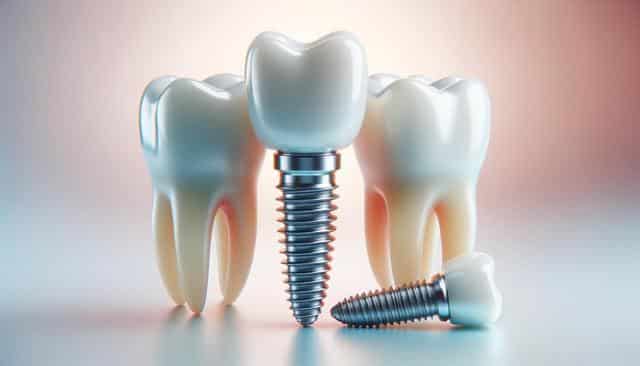
Dental Implants: Things to Consider Before Your Consultation
Understanding What a Dental Implant Is
A dental implant is a medical device used to support one or more artificial teeth. It typically consists of a titanium post that is surgically inserted into the jawbone, acting as a replacement for the root of a missing tooth. Over time, the implant fuses with the bone through a process called osseointegration, providing a stable foundation for a dental crown, bridge, or denture. This procedure is considered a long-term solution for tooth loss and offers both functional and aesthetic benefits. However, it is essential to understand what the process entails before deciding if it’s right for you.
Many people consider a dental implant because it can restore chewing ability, prevent bone loss, and improve overall oral health. Unlike removable dentures, implants are fixed and tend to feel more like natural teeth. Despite these advantages, not everyone is an ideal candidate, and a detailed evaluation is necessary to determine suitability.
Assessing Your Oral and General Health
Before proceeding with a dental implant procedure, your dentist will assess your overall health and oral condition. Successful implantation requires healthy gums and sufficient jawbone density. If you have a history of gum disease or bone loss, additional treatments such as bone grafting may be needed before an implant can be placed.
Other health factors that can influence the outcome of a dental implant include:
- Diabetes or other chronic conditions that affect healing
- Smoking, which can interfere with bone integration
- Medications that affect bone metabolism
- Recent or ongoing radiation therapy in the head or neck area
During your consultation, be prepared to share your full medical history and discuss any medications or treatments you are currently undergoing. This step ensures that your dentist can provide the safest and most effective treatment plan tailored to your needs.
Evaluating Costs and Insurance Coverage
The cost of a dental implant can vary depending on several factors, including the number of implants needed, the complexity of the procedure, and whether any preparatory treatments are required. Because of this, it’s important to have a clear understanding of the financial aspects before moving forward.
Some things to consider include:
- Initial consultation and diagnostic imaging fees
- Cost of the implant, abutment, and crown
- Any additional procedures such as extractions or bone grafting
- Follow-up visits and maintenance costs
While dental insurance may cover part of the cost, especially if the implant is deemed medically necessary, many plans offer limited coverage. It’s advisable to consult with your insurance provider and ask your dental office about available payment plans or financing options to make the procedure more affordable.
Preparing for the Procedure
Once you and your dentist have established that a dental implant is the right choice, proper preparation is essential for a successful outcome. The preparation process may involve several steps depending on your oral condition and treatment plan. These could include tooth extractions, bone grafts, or even sinus lifts if the implant site is in the upper jaw.
Here’s what you can typically expect during preparation:
- Comprehensive dental exam, including 3D imaging
- Customized treatment plan development
- Discussion of anesthesia options and post-surgery care
- Scheduling of preliminary procedures, if needed
It’s also important to follow all pre-operative instructions, such as fasting before surgery if sedation is involved, and arranging for transportation after the procedure. Proper preparation can significantly impact the healing process and the overall success of the dental implant.
Post-Procedure Expectations and Aftercare
Recovery from a dental implant procedure varies from person to person, but most individuals can expect some discomfort in the days following surgery. Symptoms such as swelling, bruising, and minor bleeding are common, and your dentist will likely provide guidelines and medications to manage these effects.
Aftercare is critical to ensure the implant integrates properly with your jawbone and maintains long-term stability. Some essential aftercare tips include:
- Maintaining excellent oral hygiene to prevent infection
- Avoiding hard or sticky foods during the healing period
- Attending all follow-up appointments
- Quitting smoking to support bone healing
Complete healing and integration of the dental implant can take several months. Once the healing process is complete, a permanent crown or prosthetic will be attached. Regular dental check-ups and a good home care routine are necessary to ensure the longevity of your implant.
Conclusion: Making an Informed Decision
Dental implants offer a reliable and aesthetically pleasing solution for tooth replacement, but they also require careful consideration and planning. By understanding the procedure, evaluating your health, assessing financial aspects, preparing properly, and committing to aftercare, you can determine whether a dental implant is the right choice for you. A thorough consultation with your dental professional will help guide you through these steps, ensuring a safe and well-informed treatment journey.


